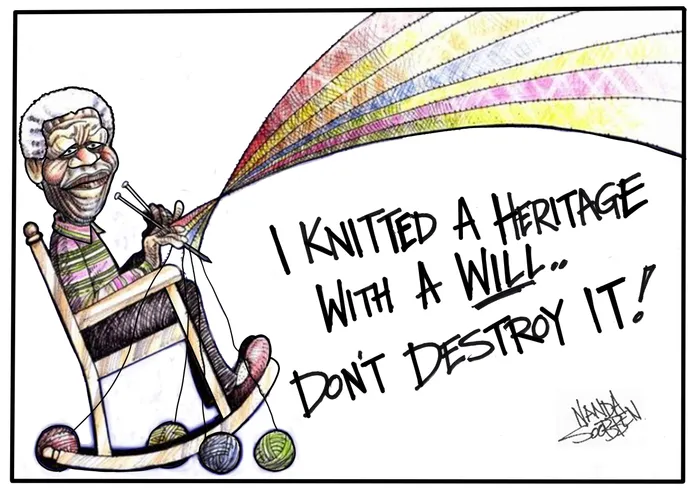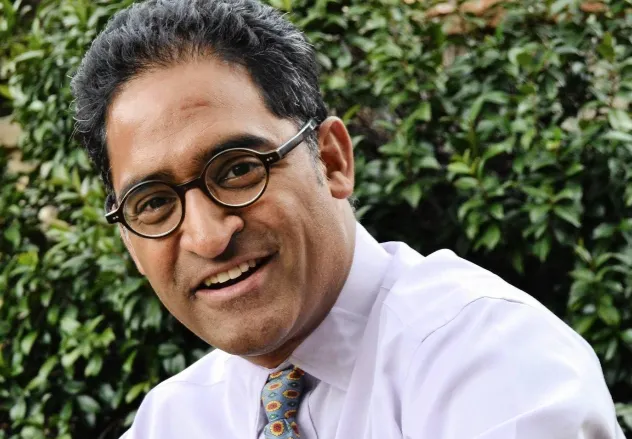The joys and challenges of heritage
Diverse cultural legacies

dfdfd
Image: Nanda Soobben
IN SEPTEMBER, we find ourselves inundated with events to celebrate Heritage Month. This is a great opportunity for all us to engage with cultural elements of the past that can inform our present – but we should also be aware of the dangers of how we present and celebrate heritage.
The month itself has an interesting heritage. It carries this name because of the public holiday on September 24. which is now called Heritage Day. But older readers may recall that this used to be commemorated (in some parts of the country) as King Shaka Day, marking the date of his death in 1828.
When the IFP, as one of the junior members in the first Government of National Unity post-1994, failed to have Shaka’s Day converted into a new national holiday, the compromise was to keep the date but rename it as "Heritage Day". So the Zulus could still celebrate the heritage of King Shaka, but this date could now provide a platform for all parts of the new nation to celebrate their various heritages.
All very well intentioned but how has this now evolved?
Here in Durban with its very strong and diverse cultural roots – principally Zulu, Indian, British but many others as well – I am conscious that these celebrations of heritage tend not to be occasions that unify. In fact, unintentionally, they can have the result of reinforcing divisions. So the Zulu celebrations of Zulu heritage are attended only by Zulus; the Indian celebrations of Indian heritage are attended only by Indians and so on.
In fact, all events are actually being attended by South Africans, but in this context it is not South Africans that we see but "Zulus" and "Indians". It is good that we have these opportunities to help people understand their ancestral heritage and appreciate better the music and costumes and customs of the past. However, they are rarely designed in a way to make them accessible or even appealing to people from outside that community.
Yet that is what we should be aiming for, so that the different threads of heritage in this country can become more intertwined to create a uniquely South African heritage: one that draws on our different pasts but prepares us for a new future together. One great example of this is the recent "Shall we Dance?" extravaganza at the Playhouse. This started off in 1991 as a showcase for the different ballroom dancing schools in Durban but has evolved, still under Neville Letard, to become a celebration of dance in all the various forms in which it is taught in this city.
So there was ballroom and Latin American dancing, tap, jazz, hip-hop, Scottish, Indian and ballet. (I assume the absence of Zulu dancing is because there are not formal schools for this kind of dance in the way there is for other disciplines). The resulting evening was an ebullient celebration of the best of Durban.
The best moments were when dancers from two different traditions – Indian + Ballroom or Tap + Hip-Hop – shared the stage and danced to the same music. By the end of the evening, the audience and the participants came away with a renewed understanding of their own "preferred" form of dance and also a deeper appreciation of dance that they do not usually see/ perform.
One fascinating example of fusion I encountered was when I was in Oudtshoorn. The local Catholic leader, Bishop Noel Rucastle told me with great pride about the story of Polish orphans who were brought to Karoo during the Second World War. From there they scattered around the country and some ended up in Durban including the well-known Masojada family. The orphans are commemorated in the crypt of the magnificent Cathedral of St Saviour with a very Polish image of Mary – our Lady of Częstochowa.
So this provides an opportunity for Catholics in the Karoo (very few of whom I imagine are of Polish origin) to learn about and appreciate a part of Catholic heritage that is for all Catholics and not just for Poles. In fact, we have that same image in KZN because the monastery of Centocow is actually derived from the name Częstochowa. Moreover, a public monument was unveiled in Oudtshoorn to celebrate this aspect of the town’s history.
While some descendants were there who are of (partly) Polish origin, also present was a full mix of local residents: descendants of indigenous people would might not have considered white Europeans as part of their common local heritage, and Afrikaners who, a few years ago, would certainly not have embraced Catholics.
At that event there was a good buffet of bobotie and koeksisters and kielbasa because food is one of the ways in which we can most easily share our own heritage and enjoy the heritage of other traditions. Perhaps that is why the safest way of marking Heritage Day is to call it National Braai Day: one thing that (almost) all South Africans share is their devotion to grilled meat!
But even these events sometimes go awry. I know a church that each year hosts a Heritage Sunday lunch at which parishioners are encouraged to bring and share food from their various cuisines. Not only is there a variety of South African foods but also, given the diversity of the community, dishes from all across the African continent and beyond. A wonderful and inclusive celebration!
Except that a few years ago when – by invitation – local homeless people joined the queue to taste the delicacies, some parishioners told them that they were not welcome because "this celebration is just for us". The on-going attempts to exclude foreign residents from access to public hospitals – and the silence of the Government and the police in responding to the illegal actions by vigilantes – reminds us that we can so easily be goaded on to exclude others.
We have to make a choice to be inclusionary or exclusionary. But if we do exclude others, we run the risk of being excluded ourselves – that is bad for each community and bad for the country as a whole. So when we plan our events for Heritage Month, we should certainly deepen our understanding of our own cultural inheritance. But we should also find out about and learn to appreciate other cultures and traditions.
And let’s share what we enjoy and cherish in a way that ensures that others feel welcome too. Heritage is not for guarding and protecting but for sharing and nourishing us all.

Dr Raymond Perrier
Image: Supplied
Dr Raymond Perrier is Director of the Denis Hurley Centre in Durban, and Chair of the National Homeless Network.
** The views expressed do not necessarily reflect the views of IOL or Independent Media.
Related Topics: